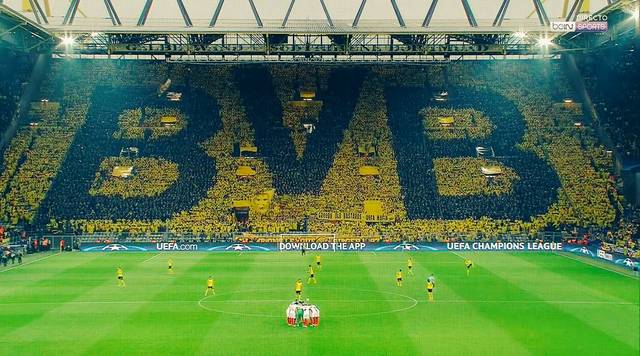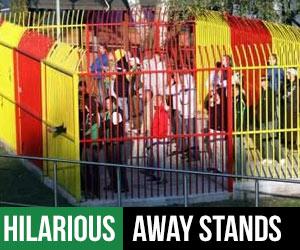Want to buy pyrotechnics? Visit pyro.ultras-tifo.net

Few football clubs in Europe can boast the sort of success and fanbase that Dortmund can - they’re the only team other than Bayern Munich and Hamburg to have won the European Cup, and given that they’ve managed to get to the Champions League Final this year, with few pundits, fans or experts predicting they’d make it this far, it’s been an incredible season for Dortmund.
Although the domestic campaign was reasonably disappointing, their Champions League Final appearance more than makes up for it. Many tipsters and predictions had them as one of the favourites for the Bundesliga this year.
However, the emergence of Xabi Alonso and Bayer Leverkusen surprised many people in Germany. KickForm Sportwettenvergleich and other football tipster pages noted that Leverkusen could be the dark horse of this year’s Bundesliga. Still, nobody, not even the sports betting companies or self-proclaimed experts, predicted they would go on their undefeated run, which finally ended in the Europa League Final.
A Century Of Heritage
In 2009, Dortmund celebrated its 100th year—and it was the first time that Jurgen Klopp took the helm, leading Dortmund to its most successful period since the 1990s. While Dortmund didn’t reach the same heights under Klopp as they did in the late 1990s, which culminated in them lifting the UEFA Champions League in 1997, it was a return to prominence for Germany’s second-richest sporting organisation.
Dortmund’s humble beginnings in 1909 stemmed from a group of young men who wanted to form their own football club, separate from the Catholic church they played for. Although some mistakenly believe that Dortmund’s name stems from Prussian routes - the team was actually named after a local brewery. After going through a few kit changes in their early years, Die Schwarzgelben first donned the famous black and yellow jersey 111 years ago, and they haven’t looked back since.
Mid 20th Century & Beyond
Dortmund was one of the founding members of the Bundesliga in 1963 and found domestic success in cup competitions throughout this decade. However, the 1970s were marred by financial problems and relegation. In 1976, they found themselves back in the Bundesliga and moved to their new, current stadium, the Westfalenstadion.
The 1980s were another barren spell for Dortmund, during which the club struggled just as much off the pitch as it did on it. Following another relegation in the mid-1980s, Dortmund lifted the DFB-Pokal and the Supercup in 1989, a sign of the immense success that awaited them just around the corner.
The Golden 90s
As we touched on earlier, Dortmund found its greatest success in the 1990s, spearheaded by a team full of elite players, including Ballon d’Or winner Matthias Sammer, who later won the league as Dortmund in 2002. Die Schwarzgelben won back-to-back league championships in 1996 and 1997, reaching the latter stages of the Champions League final on multiple occasions and becoming the first club other than Bayern Munich to become Club World Champions.
Heavy Metal Football
Despite Sammer winning the Bundesliga in 2002 - the financial woes that have plagued Dortmund at various stages of their existence reared their head again in the mid-2000s. They may have fallen into grave financial danger if they couldn’t sell on some of their top talents, such as Tomáš Rosický, which helped to keep them financially above water until the arrival of a man many believe to be their most outstanding manager.
The arrival of Jurgen Klopp in 2008 dramatically changed the team's fortunes. There’s a reason he is adored by so many football fans in Dortmund and Liverpool. Klopp found his feet in the first season, and within five years, Dortmund narrowly lost an all-German UEFA Champions League final against Bayern Munich and lifted consecutive Bundesliga titles.
Post-Jurgen Years
Following Klopp’s announcement as Liverpool manager in 2016, Dortmund didn’t return to their previous heights. Although they have been home to some of the top rising stars of this generation, most notably Jude Bellingham and Erling Haaland, it hasn’t been until this season, with their incredible run to the Champions League final, including a triumph over PSG. Dortmund is in a great position to capitalise on this if they can beat Real Madrid, who are going for their second triumph in 3 years.
Summary
As you can see, Dortmund’s history is studded with huge highs and lows, and while you would expect a team that has existed for 115 years to have some ups and downs, their financial woes seem to be a recurring theme. It feels like the club is in good hands, building from the foundation set by Jurgen Klopp and investing heavily in bringing talent into their academy.









